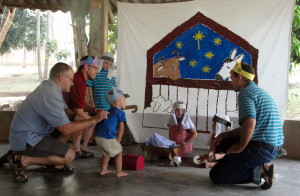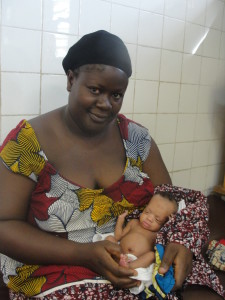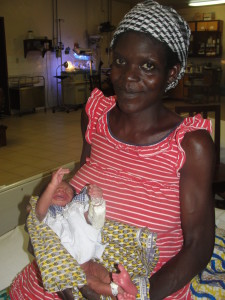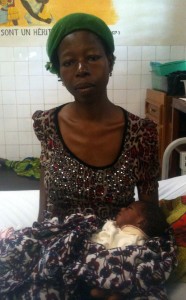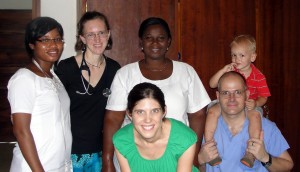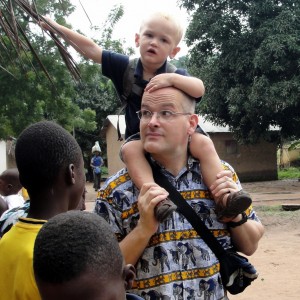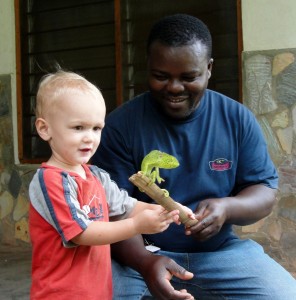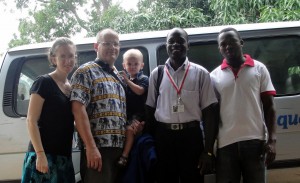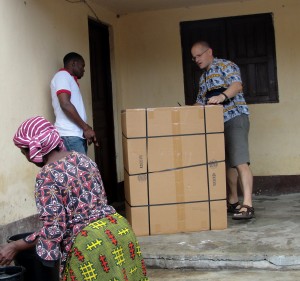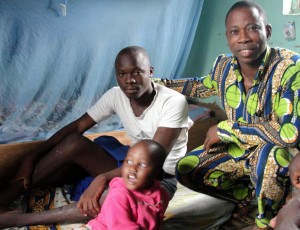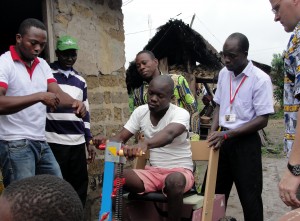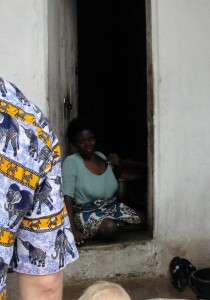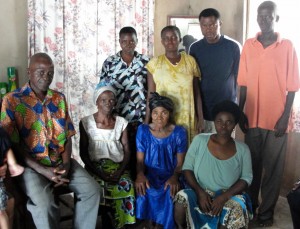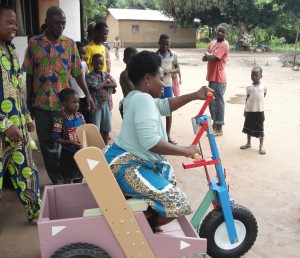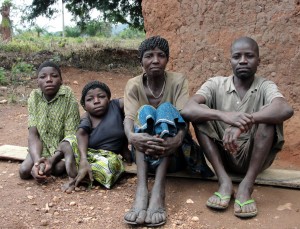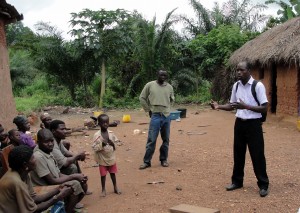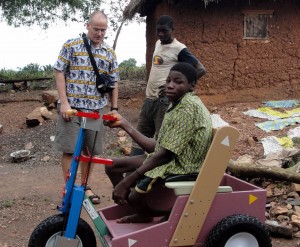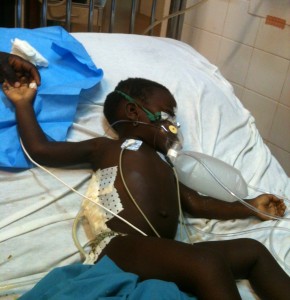It’s amazing what a difference no internet access makes! We are very thankful to finally be “back on the air” –though our internet is limited, it is something, which is better than the nothing we had for a little over seven weeks! So in case you’ve been wondering about the “silence” from the Pfennigers –this is why.
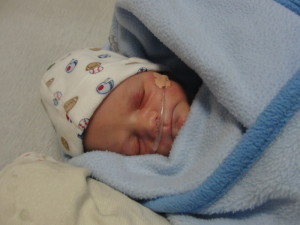 A lot has happened in the past few weeks. The major and most important event was the birth of our son, Nathanael Yawo Pfenniger, who was born March 19th at 9:30 pm. (Yawo is Ewe, the local language here, for Thursday. Togolese tradition is to name your baby based on the day they were born, so there is a boy and girl name for every day of the week.) Starting at about 8 months pregnant we had been blessed with three different OB’s who gave up time with family and vacation time to come out here to Togo for two weeks each, not only to help in the hospital but also to be there for the birth of our son. First was Dr.
A lot has happened in the past few weeks. The major and most important event was the birth of our son, Nathanael Yawo Pfenniger, who was born March 19th at 9:30 pm. (Yawo is Ewe, the local language here, for Thursday. Togolese tradition is to name your baby based on the day they were born, so there is a boy and girl name for every day of the week.) Starting at about 8 months pregnant we had been blessed with three different OB’s who gave up time with family and vacation time to come out here to Togo for two weeks each, not only to help in the hospital but also to be there for the birth of our son. First was Dr. 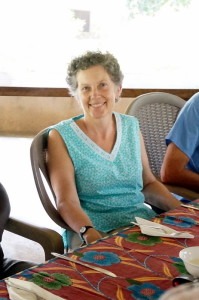 Becky Haak from Indianapolis, Indiana, who not only helped in covering the hospital and clinic but also helped to recruit the second doctor that came out as she was getting ready to leave. Dr. Teresa Brown, from Evansville, Indiana, left 4 kids and a husband at home to help us here as well. Dr. Brown walked with me twice part way up the mountain in hopes of “kick-starting” some labor without
Becky Haak from Indianapolis, Indiana, who not only helped in covering the hospital and clinic but also helped to recruit the second doctor that came out as she was getting ready to leave. Dr. Teresa Brown, from Evansville, Indiana, left 4 kids and a husband at home to help us here as well. Dr. Brown walked with me twice part way up the mountain in hopes of “kick-starting” some labor without 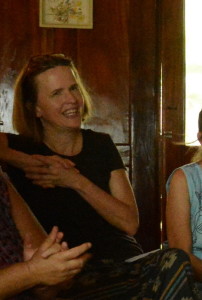 success. There was one evening, when we thought it might happen, but after an hour of regular contractions, they disappeared. Her son Josh had come with her and was very helpful in hospital ministry and in watching and playing with not only Noah, but other missionary kids here too. Then as she was leaving, in came Dr. Melodie Stocks, from Kirksville, Missouri, who left 3 kids and a husband at home as well. Thank you so much to the families of these three ladies who gave them up for this time!!
success. There was one evening, when we thought it might happen, but after an hour of regular contractions, they disappeared. Her son Josh had come with her and was very helpful in hospital ministry and in watching and playing with not only Noah, but other missionary kids here too. Then as she was leaving, in came Dr. Melodie Stocks, from Kirksville, Missouri, who left 3 kids and a husband at home as well. Thank you so much to the families of these three ladies who gave them up for this time!!
On Dr. Stock’s second day here in Togo, she got to deliver our beautiful little boy! After 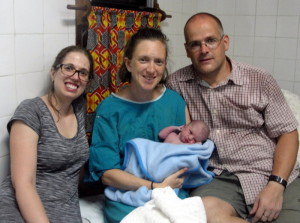 two hours of labor and three pushes Nathanael arrived in the HBB hospital. He weighed 2.6 kg (5.72 lb) and was 47 cm (18.5 inches) long. In the first few hours of life his oxygen level was lower than what was expected and he was requiring oxygen by nasal cannula. Due to this prolonged need for oxygen there was some real concern that maybe he had a cardiac problem and an emergency flight team was contacted to start the process in case this was needed. An x-ray and echocardiogram here at HBB were reassuring and then a final echo down in Lomé verified that all was normal – Nathanael has been cleared of any medical concerns, for which we are very grateful and truly thanking God for! It’s amazing how God can use times like these to strengthen your faith in him, especially when there are so many “what if. . . ?“ questions.
two hours of labor and three pushes Nathanael arrived in the HBB hospital. He weighed 2.6 kg (5.72 lb) and was 47 cm (18.5 inches) long. In the first few hours of life his oxygen level was lower than what was expected and he was requiring oxygen by nasal cannula. Due to this prolonged need for oxygen there was some real concern that maybe he had a cardiac problem and an emergency flight team was contacted to start the process in case this was needed. An x-ray and echocardiogram here at HBB were reassuring and then a final echo down in Lomé verified that all was normal – Nathanael has been cleared of any medical concerns, for which we are very grateful and truly thanking God for! It’s amazing how God can use times like these to strengthen your faith in him, especially when there are so many “what if. . . ?“ questions.
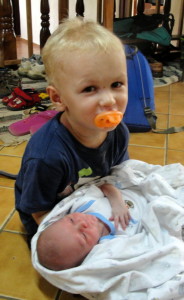 His big brother Noah was very excited and happy to first meet his baby brother –he didn’t quite understand why Nathanael couldn’t get up and come play with him as of yet. Noah has done well adjusting to the changes in the home. About a week after he was born we were blessed as several Togolese hospital employees came by in the morning to give a
His big brother Noah was very excited and happy to first meet his baby brother –he didn’t quite understand why Nathanael couldn’t get up and come play with him as of yet. Noah has done well adjusting to the changes in the home. About a week after he was born we were blessed as several Togolese hospital employees came by in the morning to give a 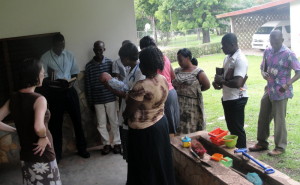 traditional “welcoming” to the baby, which involved singing, reading of scripture, and prayer, this was an event that truly touched our hearts –Fred was close to tears.
traditional “welcoming” to the baby, which involved singing, reading of scripture, and prayer, this was an event that truly touched our hearts –Fred was close to tears.
Thank you very much for all of your prayers with regards to the pregnancy, delivery, and healthy baby! We both had about a week off after the birth, which was much needed, and Lydia will be taking a few weeks off and then returning to work at the beginning of May.
We also very much want to thank Dr. Haak, Brown, and Stocks, these women not only took the time away from family and work to be with us and then jumped right in to help us in covering maternity and the OB clinic, but they also intentionally took time to minister to us as a couple and personally –we felt very blessed by them!
God bless and hope and pray that you had a meaningful Easter!
Please check out our pictures and prayer page over the next few days as we will be updating these soon –finally!

